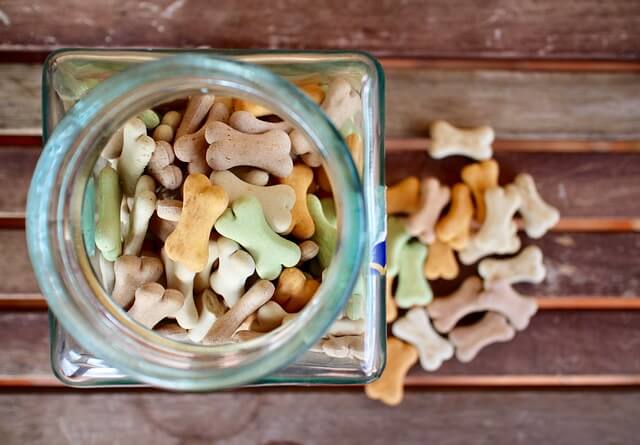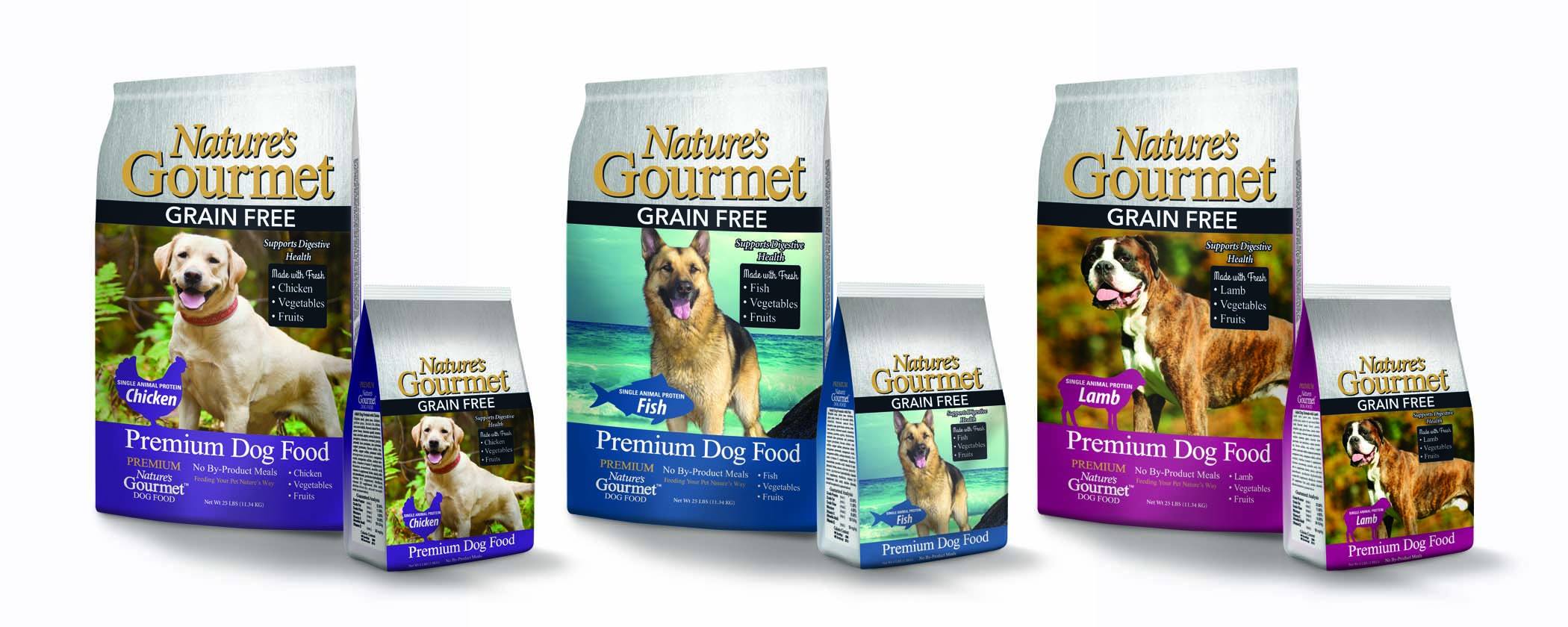The debate as to whether grain-free diets are best for our pets remains unsettled. While some dog owners swear their pup became healthier and happier after omitting grains, others claim that it’s a necessary part of their companion’s diet. Some even consider the entire thing a fad.
So what’s a pet parent to do? In short, there is no right or wrong answer; what matters is that the dietary needs of each individual dog are met. Unless your pup has an actual allergy to grains (in which case, they should not be eaten), perhaps a better question to ask should be, “What’s the best way to incorporate grains into my dog’s diet?”
We had Dr. Michel Selmer, DVM, CTCVMP, weigh in on the subject. Also known as “The Caring Vet,” Dr. Selmer is a Certified Veterinary Food Therapist (CVFT) who uses principles from Traditional Chinese Veterinary Medicine (TCVM) to treat his patients. If you want to learn more about taking a holistic approach to your pet’s healthcare, check out his book The Best of Both Worlds: An Advanced Guide to Integrative Veterinary Care for Happier, Healthier Pups. You can also follow him on Facebook.

iHD: Why are grain-free diets important – or is it just a “fad”?
Dr. S: Some believe grain-free diets are important and some do not. Yes, our domesticated best friends are not wolves. Wolves, their ancestors, primarily hunted prey animals that were herbivores (vegetarian animals). So, their diet consisted of approximately 60%-70% protein/fat and the remainder pre-digested vegetarian cuisine from the stomach contents and about 10% organ meat.
iHD: If wolves didn’t eat grains, are they necessary for our dogs?
Dr. S: Our dogs are domesticated and do not hunt. If our dogs were forced to find their own food, it would be from dumpsters behind restaurants and whatever people gave them. In essence, they are not the same as their ancestors. I would prescribe a grain-free diet if the dog was allergic to grains. Otherwise, a general formula for a healthy middle-aged dog would be 1 part protein, 1 part complex carbohydrates, and 1 part fruits and veggies. There is no one diet that is appropriate for all dogs, and over the course of their lives, one diet will never, in any way, be specific enough for dogs with individual needs.
When deciding on what to feed your dog, you must take into consideration the dog’s age, breed, sex, energy level, history and evolution of the breed, climate the dog lives in, where its ancestors came from, season of the year, and any medical or energetic condition your dog may have.
In short, the food you feed your pet should be fresh, wholesome and varied. Beyond that, it would be wise to consider applying a TCVM [Traditional Chinese Veterinary Medicine] approach to feeding your dog for ideal health.
iHD: Why can too much grain in your dog’s diet be harmful to their heath?
Dr. S: Too much of anything is bad. Balance is the key to optimal health. Grain is only a problem if a dog is allergic to a specific grain. For example, If your dog is allergic to barley, I would not advise you feed your dog barley. If your dog is not allergic to barley, then it is not harmful for your dog.

iHD: Is it hard to find true “grain-free” food?
Dr. S: It can be challenging to find a commercial dog food that is grain-free. As a Certified Veterinary Food Therapist, I commonly formulate custom, home-prepared diets for owners to provide their dog a varied, wholesome diet that they need. Be advised that I do not recommend you just go out and try to cook for your dog. You will need a properly trained Certified Veterinary Food Therapist or Board Certified Veterinary Nutritionist to help guide you to assure the home-prepared diet is balanced.
Nature’s Gourmet™ Dog Food comes in three delicious grain-free flavors and is formulated to meet the nutritional levels established by the the Association of American Feed Control Officials (AAFCO) Dog Food Nutrition Profiles for Maintenance. It’s made in the USA and supports digestive health!
iHD: What types of diets / foods would you suggest?
Dr. S: If you were to take away all of my other tools as a veterinarian — all other modalities, all surgical options, all medicinal remedies — but were willing to implement a prescribed diet designed for your pet, I’d still be able to treat many of the diseases and symptoms I treat in my hospital today. Many diseases can be cured using food as medicine because food is the critical centerpiece to ideal health.
Essentially, kibble is fast food for our pets. It is not smart to make it your dog’s lifetime, day in and day out meal. We live in a fast food nation of overfed and undernourished people, and commercial kibble only guarantees the minimum daily requirements of protein, fat, carbohydrates, vitamins and minerals; just like the fast food industry for us. Will kibble – fed occasionally – do harm to your dog? No. Just like running through the drive-thru occasionally won’t do irreparable harm to your child. The key word here is “occasionally.”

I know the ideal way to feed a pet is to use wholesome, whole foods prepared to meet my dog’s specific nutritional needs. It’s important to note that even the best bagged food is far inferior to a varied, whole food diet.
There is no one diet that is appropriate for all dogs, for their entire lives an one diet will never, in any way, be specific enough for dogs with individual needs. Canned foods are better than dry kibble foods. If you choose a canned food be sure that it is AAFCO approved, look for the stamp on the label. Home-prepared diets, if properly done with the help of a veterinarian, are better than canned foods.
My book, The Best of Both Worlds: An Advanced Guide to Integrative Veterinary Care for Happier, Healthier Pups has an entire chapter on how to use food as medicine. I hope you check it out.
We want to give a special thanks to Dr. Selmer for taking the time to share his expertise with us and our pet-loving readers.

